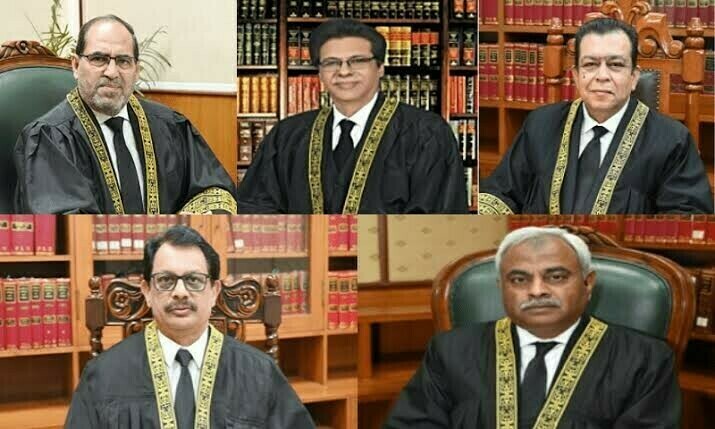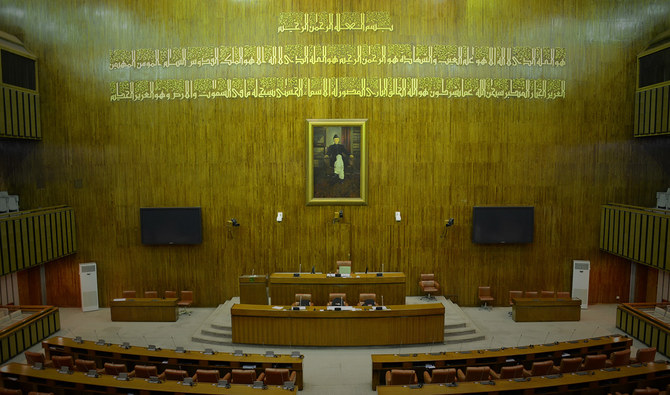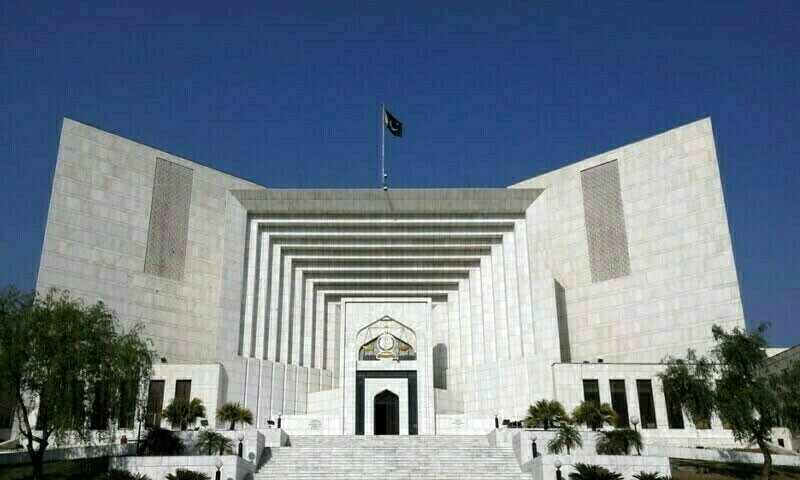LEGAL

ISLAMABAD – In a landmark ruling on a sensitive constitutional matter, the Supreme Court of Pakistan has upheld the transfer of three high court judges to the Islamabad High Court (IHC), rejecting claims that the move was unconstitutional. The decision was delivered with a narrow 3-2 majority, with Justices Naeem Akhtar Afghan and Shakeel Ahmed dissenting.
The case revolved around the February 2024 transfer of Justice Sardar Mohammad Sarfraz Dogar (LHC), Justice Khadim Hussain Soomro (SHC), and Justice Muhammad Asif (BHC) to the IHC. The controversy escalated when Justice Dogar was elevated as the senior puisne judge, leading to his appointment as Acting Chief Justice of the IHC.
The five-member bench, headed by Justice Muhammad Ali Mazhar and including Justices Shahid Bilal Hassan, Salahuddin Panhwar, Afghan, and Ahmed, heard petitions filed by five IHC judges, the Karachi Bar Association, and the IHC Bar Association.
In its majority short order, the court ruled that the transfers, carried out under Article 200 of the Constitution, were valid and "cannot be construed as fresh appointments." The court clarified that such transfers required consent and consultation with the Chief Justice of Pakistan and the chief justices of the respective high courts, placing the matter squarely within the judiciary’s domain.
However, the court noted that seniority and nature of the transfers (permanent or temporary) were not clarified in the original notification. It has now partially remanded the matter to the president for a final determination on these aspects.
Justice Dogar will continue as Acting Chief Justice of the IHC until a formal clarification is issued by the president regarding the seniority and status of the transferred judges.
In the dissenting opinion, Justice Naeem Akhtar Afghan criticized the process, declaring the transfers “null and void” and accusing the executive of bypassing due process. He said the move violated multiple constitutional provisions, including Articles 2A, 4, 25, and 175A.
Justice Afghan stated that the transfers were executed in "undue haste" and without "meaningful consultation," warning that such actions undermine the independence of the judiciary and sidestep the proper process of appointing judges through the Judicial Commission of Pakistan.
The decision has sparked a fresh debate over judicial independence, executive discretion, and transparency in the appointment and transfer of judges, particularly as Pakistan’s judiciary continues to face institutional and political challenges.




